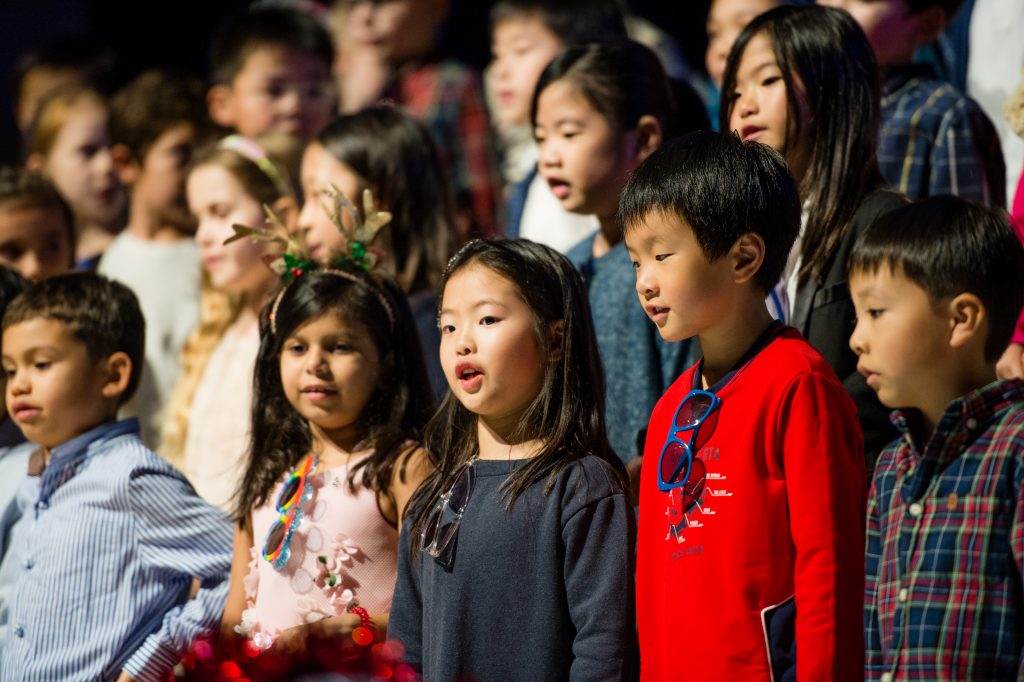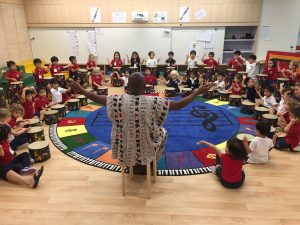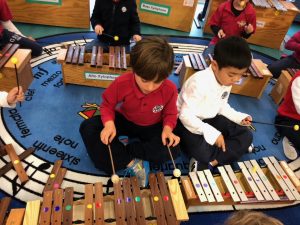Lower Primary Music Philosophy

The Lower Primary Music program offers children an engaging curriculum that balances singing, instrument playing, conceptual learning, listening and movement. Each class has active opportunities for children to sing, play instruments, listen to music and move their bodies.
Our Lower Primary music students enjoying playing games and working cooperatively to build a feeling of community. Students often engage in musical inquiry, discovering how to write musical patterns and play them on instruments. Students also build their musical creativity by exploring instrument sounds or working on creative composition and improvisation projects in small groups.
The Lower Primary music program offers a gentle approach to music literacy and theory called sound to symbol. Students develop their listening and noticing skills, then connect what they hear to notes they read and write. Kids internalize music and use natural symbols such as dots and lines to show rhythm and melody. This is an intuitive first step to reading and writing music that forms a bridge to conventional notation in the future.
Performance is a very important part of the Lower Primary Music program, giving students opportunities to build work ethic, confidence and self-expression. At chapels and grade level concerts, students get the opportunity to perform on-stage or be part of an appreciative audience. We look forward to making music with you this year!




HKIS Music Department Philosophy R1-12
Beliefs: Music Education
Music is valued in human culture because it brings us a sense of beauty, connection with others, and belonging to something larger than ourselves. Participating in music involves the learners’ whole being and fosters the development of mind, body and spirit.
Music education develops the skills, knowledge and habits of musicianship and the emotional expressiveness and responsiveness of musicality. Music education supports connections with other disciplines and also builds character through encouraging growth in creativity, resilience, and collaboration. The HKIS music program prepares students to be contributing members of a diverse society, and encourages lifelong music appreciation.
*****************************************************
Long term transfer goals: Students will be able to independently:
- Create a personal place for music and enjoy music throughout their lives
- Develop their own musical preferences while appreciating the value of diverse genres.
- Be discerning listeners and educated consumers of music, responding to music and having intelligent conversations about what they hear.
- Further develop the skills and habits of musicianship and express their individual musicality.
- Experience the power of many becoming one through musical connections within an ensemble.
*****************************************************
Common agreements: Music Education happens best when we:
- Show and share our own love of music.
- Create safe and positive spaces that invite students to be themselves, take risks and experience the joy of making music.
- Give students opportunities to listen, respond to music, and converse about music.
- Encourage the development of both musicianship and musicality, and provide opportunities to share music through performance.
- Give students opportunities to hear and explore a diverse repertoire.
- Provide rewarding and successful ensemble experiences that allow students to feel the power and beauty of musical synchrony.